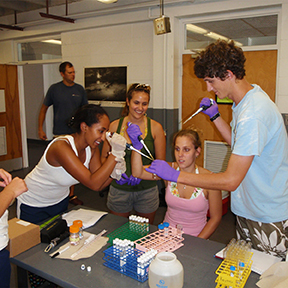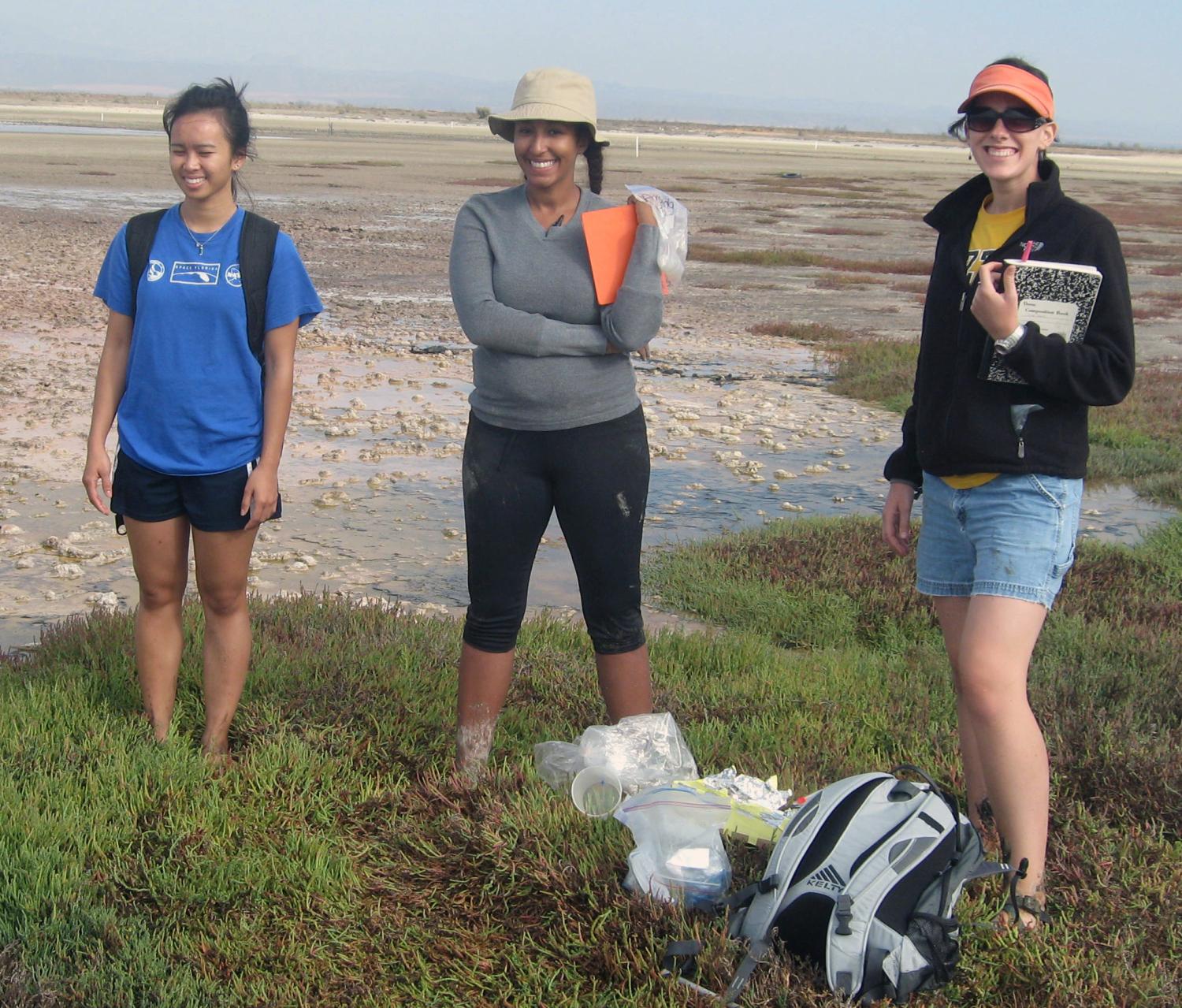Dr. Tazaz Is On A Mission To Increase Diversity In Geosciences
By Larissa Martins, LSI Communications Assistant
Florida State graduate and Learning System Institute research faculty, Dr. Amanda Tazaz, is an oceanographer on a mission to increase the diversity in the field of geoscience.
Despite Dr. Tazaz’s passion for the field, she felt discouraged because there were not many researchers, teaching faculty, and mentors in the geosciences that looked like her, due to significant lack of diversity and representation that continues to plague the geosciences to this day. Unfortunately, this is a common experience among minorities studying geoscience in the U.S. According to research done by Rachel E. Bernard and Emily H. G. Cooperdock, “From 1973 to 2016, it has been reported that 22,614 PhDs were awarded in the geoscience, however only 232 were awarded to black students, 628 to Hispanic students, and 74 were awarded to Native American students.”
Dr. Tazaz said, “For such a long time, the voice that has been coming out of the science world has been one tone and one perspective,” but she is ready to help lay the groundwork to increasing the range of voices and perspectives in the field.

She is thrilled to lead a new project funded by the National Science Foundation (NSF) that will open doors for minority students to engage and experience geoscience prior to college. By partnering with the Boys and Girls Club of the Big Bend, she is organizing the ultimate summer camp experience to enable high schoolers in marginalized communities to participate in meaningful learning opportunities with local geoscientists during summers of 2024 and 2025.
“This is my first opportunity to try to change the field so that people don’t have to experience what I experienced,” Dr. Tazaz stated.
Multiple camps will cover specific topics in four-week spans. Participants will be given real-world data collection and experimentation experiences that will teach them about essential environmental themes, such as rising sea levels, river and coastal management, groundwater flow in the local environment, and natural environmental hazards affecting the local community.
When asked why she chose these particular themes, Dr. Tazaz answered, “These are important topics that all Floridians should know about because they really affect us. Hurricanes affect us everywhere in the state. Sea levels rising is a big deal and there are many things that I feel are really important for people to understand.”
Although one of her goals is to inspire a new generation of diverse geoscientists, Dr. Tazaz emphasizes the significance of being educated on the environment, regardless of the career the participants choose in the future.
This project was partially inspired by her impactful experience at a three-day Sea Camp in the sixth grade. She fondly reminisced on playing manhunt in the mangroves with her classmates, dissecting an octopus and then writing with its ink. She recalls how the camp in the Florida Keys deepened her perspective on the ocean. However, she left without knowing that oceanography was a viable career path for someone like her.
Knowing firsthand how summer camps can stimulate scientific curiosities in children, Dr. Tazaz has meticulously planned this project to educate them on developing their interests into careers. In partnership with the admissions departments at TCC, FSU, and FAMU, the summer camp will provide participants with resources on how to apply for and be accep ted into geoscience college programs. The project has also partnered with local and state geoscience stakeholders who will provide participants with opportunities to engage and discuss career opportunities in the geosciences. These partnerships ensure that these camps will be more than just memorable summer experiences by showing attendees a pathway to becoming geoscientists.
ted into geoscience college programs. The project has also partnered with local and state geoscience stakeholders who will provide participants with opportunities to engage and discuss career opportunities in the geosciences. These partnerships ensure that these camps will be more than just memorable summer experiences by showing attendees a pathway to becoming geoscientists.
“I’m looking forward to expanding science to everyone,” said Dr. Tazaz. “I just feel like there are so many people who feel like they are not valued, that their opinions don’t matter, and that they have nothing to contribute to the scientific discussion.”
Dr. Tazaz dreams of a future where she can expand this opportunity to minority children of all ages through different projects that can introduce more people to the endless possibilities in the world of geoscience.
“That’s why I’m doing what I’m doing now. The world is your oyster in this field, [and] it’s really important for people to see themselves, physically or culturally, in the geoscience society,” said Dr. Tazaz.
